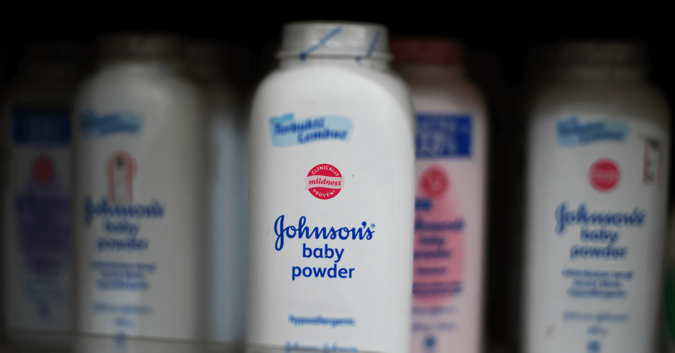On Fri., Oct. 18, 2019, Johnson & Johnson (J&J) voluntarily recalled a batch of Johnson’s Baby Powder® due to the presence of chrysotile asbestos. According to a company spokesperson, the move marks the first time in its over-100-year history that J&J has removed Baby Powder from the market.
A naturally occurring mineral, asbestos is known as a “silent killer”— its fibers are microscopic, but if accidentally inhaled or ingested, these fibers can lodge themselves in a person’s lung lining, sparking the development of mesothelioma, a rare, slow-growing, and especially deadly cancer.
Asbestos is a known carcinogen, and, according to numerous global health agencies, there is no safe level of exposure to it. It remains the only known cause of mesothelioma.
As of now, only one shipment of Johnson’s Baby Powder is being recalled. J&J announced the recall shortly after a random test was conducted by the U.S. Food and Drug Administration (FDA), which found traces of chrysotile asbestos in test samples from a single bottle.
The asbestos-contaminated samples were gathered from a batch of Baby Powder shipped to the U.S. in 2018. The online retailer that sold the bottle of Baby Powder to the FDA has yet to be identified.
Over 14,000 Johnson & Johnson Baby Powder Lawsuits and Counting
In recent years, the massive New Brunswick, NJ-based company, Johnson & Johnson, has been no stranger to controversy or the courtroom. In fact, the company’s talc-based Baby Powder is the subject of many ongoing lawsuits, as long-time users of Johnson’s Baby Powder continue to develop ovarian cancer and mesothelioma and allege the product as the cause.
Jury verdicts have doubled-down on the public’s perception of J&J as a profit-driven corporation that puts profits first, ahead of consumers. Some asbestos-contaminated Baby Powder trials have rendered enormous settlements for the parties affected and their families.
Just last year, a Missouri jury ordered J&J to pay $4.7 Billion to 22 women who allegedly developed cancer from using talc-based J&J products.
While Johnson & Johnson continues to stand by the safety of their talc-based products in trial after trial and statement after statement, it seems abundantly clear — especially in light of the FDA’s asbestos-positive test — that their word would be better off taken with a grain of salt.
As of October 2019, over 14,000 talc-asbestos lawsuits await their day in court with J&J. This number is only expected to grow.
Ripple Effects of Johnson’s Baby Powder® Recall
The recalled batch of Baby Powder can be identified by the lot number #22318RB. According to a report by the New York Times, the recall includes roughly 33,000 bottles of asbestos-contaminated Baby Powder.
After its announcement on Friday, J&J noted that they are only issuing such a recall “out of an abundance of caution.” Moving forward, the company will work with the FDA to “determine the integrity of the tested sample and the validity of the test results.”
No apology. No admission of potential wrongdoing. When it comes to dealing in legal matters with the $360-Billion company, many consumers have unfortunately grown used to this kind of behavior. At the end of the day, a multi-billion-dollar corporation that aims to maximize profits for shareholders will always do its best to avoid picking up the pieces to any mess it has made.
If profit margin is the only thing that will grab the company’s attention, then the public might see Friday’s stock-market response as a small victory. Shortly after the recall announcement was made, J&J stock fell over 6% in total value, or the equivalent of roughly $24 Billion.
